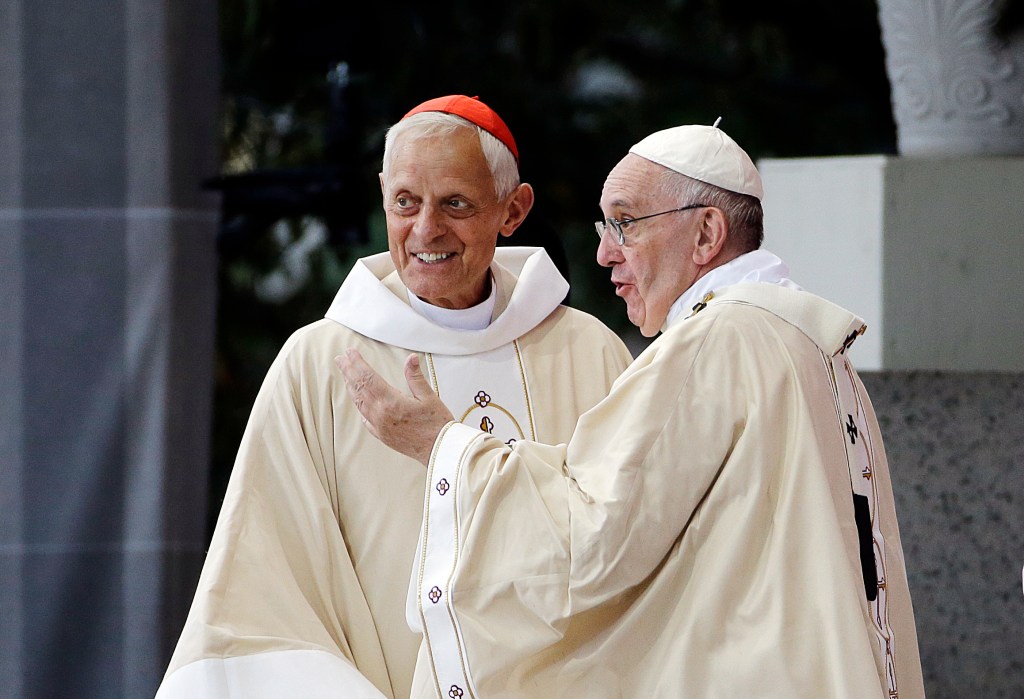It is as advertised.
The statewide grand jury report on sexual abuse by Pennsylvania clergy in six Catholic dioceses over decades is both sweeping and sickening.
It is bound to lead to change. In law. And, hopefully, in hearts.
It’s also bound to raise questions. Some, concrete and specific, about the grand jury process, and balancing rights of victims and those accused of abuse.
Some, more universal and ethereal, about church teachings and faith, perhaps even about the nature of sin.
The report, released Tuesday, is described by state Attorney General Josh Shapiro as the most comprehensive of its kind ever produced in the United States.
A nearly two-year investigation found 301 “predator priests,” accounts of more than 1,000 child victims, and cover-ups by bishops and others who knew of the crimes because each diocese kept “secret archives.”
Graphic examples of rapes and other abuses offered by Shapiro during a nearly hour-long news conference in Harrisburg are all too familiar after years of similar findings in other states and countries – but they are no less nauseating:
A 17-year-old boy in the Diocese of Pittsburgh forced to stand naked on a bed in a rectory and pose for photos as the crucified Christ for a group of priests and their collection of child pornography.
A 7-year-old boy repeatedly raped by a Diocese of Allentown priest, raped so violently that the boy’s spine was damaged. He later became addicted to painkillers, overdosed, and died. His mother told the grand jury that the church “never admitted to anything.”
Shapiro said the abuse scarred each of the six dioceses — Allentown, Erie, Greensburg, Harrisburg, Pittsburgh, Scranton, — and that the church “protected the institution at all costs,” sometimes paying victims for silence.
What do reports such as these, reports that just keep coming, do to Catholics?
Do they drive down church attendance? Affect contributions to parishes, to Catholic causes and charities? Do they force questions of trust and faith in Catholicism itself?
And how does the church respond?
After the 2005 Philadelphia grand jury report on sexual abuse and cover-up, the archdiocese responded through legal counsel with a 69-page document.
It, of course, included “deepest apology for the harm caused by the behavior of a limited number of the thousands of dedicated priests who have faithfully served.” It said, “The archdiocese prays that those victimized by sexual abuse seek out and obtain assistance to heal the wounds of this inexcusable offense.”
But it also labeled that ’05 report as “a sensationalized, unfair, and inaccurate portrayal of the archdiocese’s response to child sex abuse claims.”
Will we see the same sort of response now?
Or will church leaders accept a challenge set down by Shapiro to actively push for grand jury-recommended changes in law?
The church, for example, could support abolishing statutes of limitations for sexually abusing children. The church could tell its lobbyists and insurers that it’s finally ready to put the interests of victims first.
It also could start a climb back to credibility by signaling it no longer will shuffle abusive priests from place to place. It could support a tougher abuse-reporting law that says anyone with reasonable cause to believe an abuser is likely to abuse again has an obligation to report that person.
And speaking of obligation, I’m struck by the fact that the new report was released on the eve of a holy day of obligation. Aug. 15 is the Feast of the Assumption of the Blessed Virgin Mary, a day honoring Catholic teaching that the mother of Jesus was taken, body and soul, into heaven at the end of her earthly life.
I was reminded, while at Mass last weekend, that failure to attend Mass on a holy day of obligation is a mortal sin. That’s a sin the church calls a “sin of grave matter,” one “committed with full knowledge of the sinner,” that can lead to damnation, i.e. the eternal fires of hell.
There seems to be some imbalance here. I can think of worse sins. Sins that really merit damnation.
John Baer is a columnist at the Philadelphia Daily News.
Visit the Philadelphia Daily News at www.philly.com
Distributed by Tribune Content Agency, LLC.
Send questions/comments to the editors.


